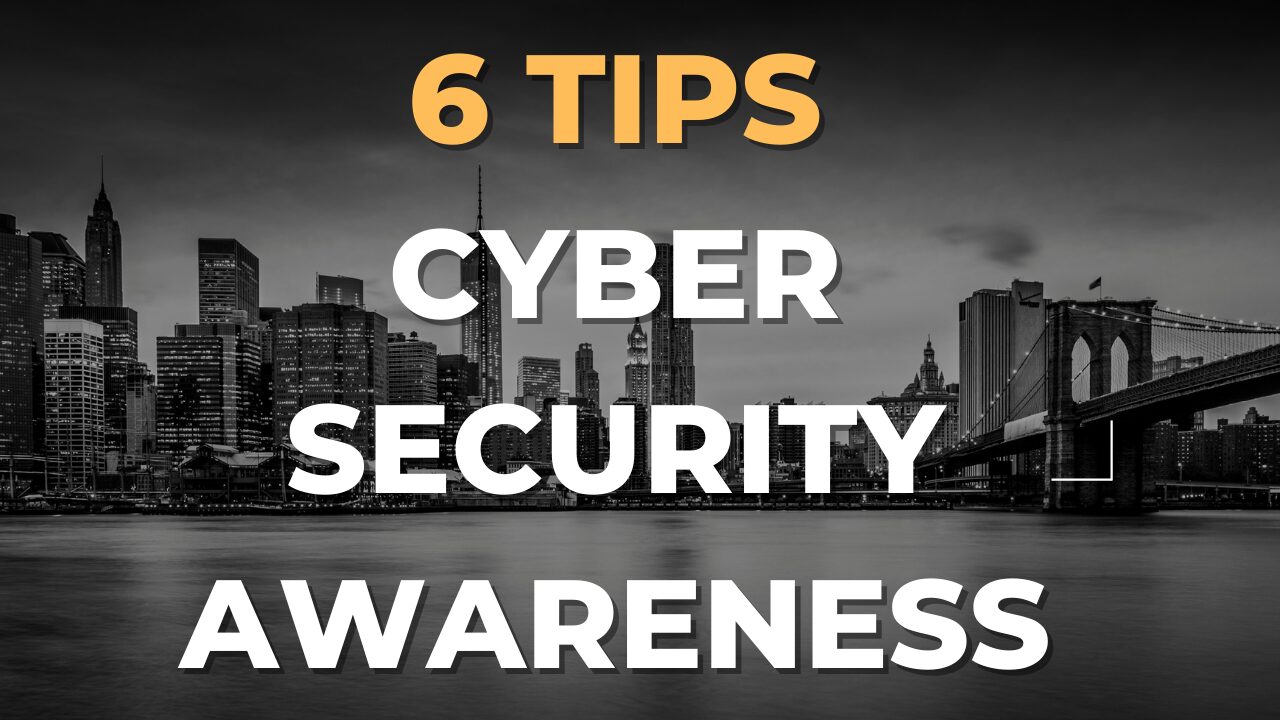What is the Florida Information Protection Act (FIPA)? Compliance Tips for Businesses
The Florida Information Protection Act (FIPA) is a critical piece of legislation designed to protect Florida residents’ personal information and customer records. Enacted in 2014, it requires businesses and organizations that collect, store, and use personal data to implement specific security measures to safeguard such information. It is essential for businesses operating within Florida to understand the provisions of FIPA to ensure compliance and avoid potential penalties.
Through FIPA, Florida aims to foster robust data security practices that reduce the likelihood of data breaches and identity theft. The act mandates organizations to notify individuals and the state authorities in case of a data breach, ensuring transparency and timely action to mitigate potential damages. In an increasingly digital world, complying with FIPA helps reinforce consumer trust by demonstrating a commitment to protecting sensitive personal information.
Key Takeaways
- FIPA is a vital legislation designed to safeguard the personal information of Florida residents.
- Compliance with FIPA is crucial for businesses operating in Florida to avoid penalties.
- Adhering to FIPA strengthens consumer trust and promotes responsible data security practices.
What is The Florida Information Protection Act (FIPA)
The Florida Information Protection Act (FIPA) is a state law that aims to safeguard the personal information of individuals residing in Florida. Enacted in 2014, FIPA imposes various data security and breach notification requirements on businesses operating in the state. Its primary objective is to protect Florida residents from identity theft and cybercrime.
As a business owner, you should be aware that FIPA applies to any commercial entity that collects, maintains, stores, or processes the personal information of Florida residents. This includes entities located outside Florida if they hold data of its residents. FIPA protects consumers and helps maintain the credibility of affected businesses.
Under FIPA, personal information refers to an individual’s first name (or initial) and last name, combined with any specific data elements. These elements may include social security numbers, driver’s license numbers, financial account numbers, and other similar data. Also, FIPA covers protected health information (PHI) under the Health Insurance Portability and Accountability Act (HIPAA).
To comply with FIPA, you must implement reasonable security measures to protect sensitive data from unauthorized access or disclosure. Such measures can be both physical and electronic. Examples include implementing strong access controls, ensuring regular software updates, and providing employee training on data security best practices.
FIPA mandates prompt notification to the affected individuals in the event of a data breach. If the breach affects more than 500 Florida residents, you must notify the Florida Department of Legal Affairs (DLA). Timelines for notifications vary: within 30 days for individuals and within 45 days for the DLA. Failure to comply with these requirements can result in fines, penalties, and potential reputational damage.
In conclusion, stay vigilant when handling Florida residents’ personal information, and comply with FIPA requirements through appropriate data security measures and breach notification procedures. Remember, protecting the privacy of your customers ultimately benefits your business and its reputation.
Key Components of FIPA
The Florida Information Protection Act (FIPA) is designed to protect personal information and customer records within Florida. This legislation focuses on establishing strong data security practices and timely breach notification procedures. Here are the key components of FIPA that you need to be aware of:
- Scope of Personal Information: FIPA defines personal information as an individual’s first name, first initial and last name, or any other personal identifier combined with one or more data elements such as a social security number, driver’s license number, financial account number, or medical information. Protecting this personal information is crucial for maintaining individuals’ trust and privacy.
- Security Measures: As a business operating in Florida, you are required under FIPA to take reasonable measures to protect personal information in your possession. This includes implementing and maintaining appropriate security systems, policies, and procedures that ensure personal information’s confidentiality, integrity, and availability. Regular risk assessments and employee training on data security practices are also necessary for a comprehensive security program.
- Breach Notification: In the event of a data breach, FIPA mandates that you provide timely and clear notification to all affected individuals. You must inform the individuals of the nature of the breach, the types of personal information that were compromised, and the steps taken to mitigate the impact. You must also notify the Florida Department of Legal Affairs (FDLA) within 30 days if the breach affects more than 500 individuals in Florida.
- Penalties: Non-compliance with FIPA can result in financial penalties and damage your business’s reputation. Failing to provide the required breach notification or implement appropriate security measures can lead to penalties of up to $500,000.
In summary, complying with FIPA requires understanding the scope of personal information, implementing strong security measures, and adhering to breach notification guidelines. Doing so can safeguard your customers’ data and maintain trust with the individuals you serve in Florida.
Importance of FIPA for Businesses
As a business operating in Florida, you must understand and comply with the Florida Information Protection Act (FIPA). This legislation focuses on securing personal information and customer records, helping businesses maintain the trust of their clients and protect themselves from potential data breaches and penalties.
To begin with, FIPA requires you to implement and maintain reasonable security measures to protect personal and sensitive data. Doing so reduces the risk of unauthorized access, theft, or other potential data breaches. This safeguards your customers’ information, protects your business reputation, and assures clients that their data is secure with you.
Moreover, FIPA mandates the timely notification of affected individuals and the Florida Department of Legal Affairs in case of data breaches within a specified time frame. Being proactive in such a situation demonstrates transparency and responsiveness, which can help mitigate the impact on your customers and business.
Adhering to FIPA requirements is essential from a legal standpoint and is also beneficial for maintaining strong customer relationships and building a trustworthy reputation. Businesses prioritizing data privacy and security tend to stand out positively in a competitive market. In the long run, compliance with FIPA can provide competitive advantages that contribute to your business’s success.
Remember, ensuring your business complies with FIPA is an ongoing process. Continuously monitor and update your data protection practices and educate your employees on the importance of data security and personal information protection. By being proactive and vigilant, you contribute to a safer environment for your customers and your business.
Steps To Comply With FIPA
Implementation of Proper Data Security Measures
To comply with the Florida Information Protection Act (FIPA), you should implement proper data security measures to protect personal information and customer records. This includes encryption, secure password policies, and regular monitoring for vulnerabilities. Regularly update your software and hardware infrastructure to ensure optimal security.
Timely Reporting of Data Breach
In the case of a data breach, part of FIPA compliance is promptly reporting the incident. Notify affected individuals and regulatory authorities as required, typically within 30 days of discovering the breach. Keep precise records of your investigation, and include any individuals, types of data involved, and steps taken to address the breach.
Education and Training of Employees
Lastly, to ensure FIPA compliance, educating and training your employees about the requirements and importance of data protection procedures is of the utmost importance. This includes awareness of data breaches, understanding company policies, and recognizing potential risks. By providing ongoing training, you can reduce the likelihood of a breach and promote a security culture within your organization.
Understanding Exemptions Under FIPA
When complying with the Florida Information Protection Act (FIPA), it is important to understand the exemptions that apply to your organization. You should familiarize yourself with the following common exemptions to ensure your compliance efforts are correctly focused.
Exemption 1: Financial Institutions and Healthcare Providers
Financial institutions and healthcare providers already covered by federal laws such as the Gramm-Leach-Bliley Act (GLBA) or the Health Insurance Portability and Accountability Act (HIPAA) are generally exempt from FIPA. However, you must ensure that your organization complies with the respective federal laws to take advantage of this exemption.
Exemption 2: Government Agencies
Many government agencies are exempt from FIPA, primarily because they are already subject to other state or federal data protection and privacy regulations. However, not all government agencies are exempt, so it is important to determine if your specific agency falls under this category.
Exemption 3: Third-Party Agents
In certain circumstances, third-party agents who work for a covered entity may be exempt from FIPA. However, these third-party agents must have a written agreement with the covered entity that clearly defines their responsibilities and obligations regarding data protection. You should closely review your contracts with third-party agents to ensure exemption eligibility.
Exemption 4: Breaches Affecting Fewer than 500 Individuals
Breaches affecting fewer than 500 individuals may be exempt from FIPA’s notification requirements. While this exemption allows for a lesser reporting burden, managing any data breach effectively and responsibly is still crucial. Always document relevant details, thoroughly investigate, and follow appropriate security measures.
In conclusion, understanding these exemptions under FIPA is crucial for your organization’s compliance strategy. Assess whether these exemptions apply to your organization and adjust your compliance efforts accordingly. By staying informed about FIPA and its exemptions, you can better protect your organization and maintain the trust of your customers.
Potential Penalties for Non-Compliance
As a business operating in Florida, you must be aware of the potential penalties of non-compliance with the Florida Information Protection Act (FIPA). Failing to meet the requirements set forth by this regulation may result in both financial and legal consequences.
First, you must understand that FIPA requires businesses to notify affected individuals within 30 days of discovering a data breach. Failure to do so could lead to fines up to $1,000 per day for the first 30 days and $50,000 for each subsequent 30-day period. This can quickly add up and severely impact your business financially.
Moreover, if the breach affects more than 500 individuals, your business must notify the Florida Department of Legal Affairs. Ignoring this requirement may result in additional fines of $10,000 per breach or $500,000 in the aggregate, depending on the breach’s circumstances.
It’s important to note that these penalties do not have a cap. Therefore, any prolonged delays in reporting a data breach will only worsen matters for your business. The cumulative fines may surmount to an amount that could cripple your business operations.
To ensure you stay compliant with FIPA, consider implementing preventive measures such as:
- Regularly assessing and monitoring your data security systems
- Training your employees on data protection practices
- Developing an incident response plan to handle any data breaches
By taking these steps, you can decrease non-compliance risk and save your business from the costly repercussions of FIPA violations.
Professional Assistance For FIPA Compliance
As a business owner in Florida, complying with the Florida Information Protection Act (FIPA) is crucial to protect your clients’ personal information and avoid potential fines. You might benefit from professional assistance to ensure your FIPA compliance is secure and up-to-date.
- External Audits: Conducting regular external audits can prove valuable for your business. Professionals can assess potential vulnerabilities and recommend the necessary changes to improve your information protection systems. This process minimizes the risks of data breaches and aligns your business with FIPA requirements.
- Employee Training: Educating your employees on FIPA regulations can reduce the data breach risk. Professional assistance can come through training courses or workshops that offer an in-depth understanding of FIPA rules, techniques to identify potential risks and best practices for maintaining secure information systems.
- Legal Consultation: Consulting with attorneys well-versed in FIPA regulations may help protect your business from potential lawsuits and regulatory penalties. These professionals can provide up-to-date information on often changing laws, ensuring that your information security policies comply with the legal requirements.
- Customized Compliance Solutions: One size does not fit all regarding FIPA compliance. Professional consulting services can help you tailor your information security solutions to your business’s unique needs and constraints. They can assess your data protection infrastructure and provide a customized plan promoting compliance and efficient workflow.
Outsourcing your FIPA compliance can bring several benefits to your business, including improved efficiency, reduced data breach risks, and enhanced legal protection. Invest in professional support to keep your business ahead in a digital landscape prone to cyber threats.










